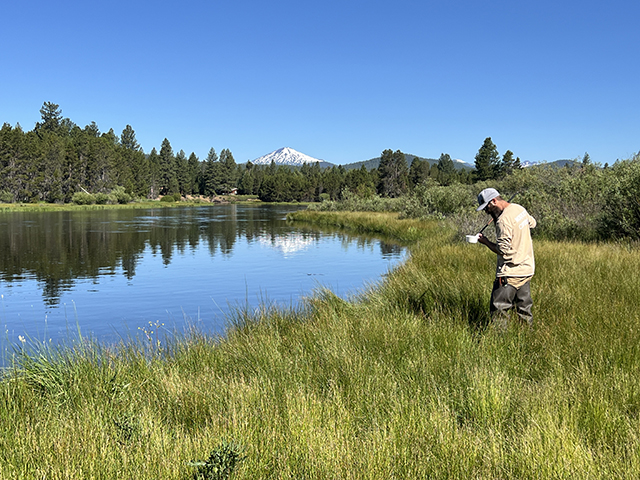Deschutes County: Rural church can keep hosting weddings
Published 12:00 am Tuesday, July 3, 2018

- John Shepherd stands against the archway he built for wedding ceremonies outside Sisters on Oct. 19, 2017. (Joe Kline/Bulletin file photo)
Deschutes County appears likely to allow a limited number of weddings at a rural church near Sisters that has found itself at the center of a dispute involving land use regulations and religious freedom.
The Deschutes County Commission won’t formally approve the Shepherdsfield Church and its wedding venue until July 11, but commissioners on Monday indicated they intend to allow the church’s pastor, John Shepherd, to host up to 27 weddings a year to avoid the threat of a federal religious liberty lawsuit.
After the board’s discussion, Shepherd said he was feeling positive about the decision. “I would find 27 acceptable,” he said.
Shepherd began holding services from his home on a 216-acre property just outside Sisters about 20 years ago. He hosted two weddings for church members several years ago, then began offering weddings for nonchurch members.
But in 2014, he learned his church and the weddings it hosted violated a 1992 Deschutes County provision designed to protect wildlife. Shepherd’s land is in the county’s Wildlife Area Combining Zone, where certain uses — including churches, commercial dog kennels, schools, golf courses and bed-and-breakfasts — are prohibited even though they’d be allowed in other rural areas.
County commissioners tried to remove this hurdle by amending county code in January to allow churches in the zone, but the state’s Land Use Board of Appeals told Deschutes County in May it needed to rethink the decision. The county is appealing the land use board’s ruling. Monday’s discussion, meanwhile, was aimed at preventing a conflict with a federal law that protects houses of worship from discrimination in land use ordinances.
The Religious Land Use and Institutionalized Persons Act, signed by President Bill Clinton in 2000, says cities and counties can’t use zoning to prevent groups from worshipping. Shepherd and his Detroit-based land use attorney, Daniel Dalton, have argued that Deschutes County risks a federal lawsuit by prohibiting the church or the weddings it hosts because the weddings are a part of Shepherdsfield’s ministry.
The law includes a “safe harbor” provision that protects governments from lawsuits if they change their codes or exempt religious institutions from those policies. Adam Smith, the county’s assistant legal counsel, said doing so would protect the county from having to decide whether its code violated the federal religious freedom law.
“You can avoid the pre-emptive force, the litigious aspects of RLUIPA, by just finding a way to allow a church,” Smith told commissioners.
Central Oregon LandWatch, an environmental watchdog group and the chief opponent of the church, has argued that no weddings should be allowed. Shepherdsfield is in the winter range for deer, and LandWatch contends that noise from large human gatherings affects the animals.
However, the county already allows some agritourism activity in the wildlife zone, and secular businesses are able to get permits to hold up to 18 weddings or similar large events a year.
Commissioners discussed whether they should limit the number of weddings Shepherdsfield can hold to 18 per year, the same as nonreligious wedding venues.
But they ultimately settled on 27, the number of total weekends between the start of April and the end of September. Shepherdsfield hosts weddings on Saturdays, with time on Fridays to set up and time on Sundays to clean up.
Commissioners said the limit would protect the winter deer range while not unduly limiting the church’s ability to practice.
“If we’re practical about it, I think the most logical would be 27,” Commissioner Tammy Baney said.
— Reporter: 541-633-2160; jshumway@bendbulletin.com








